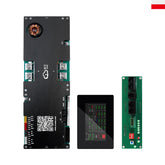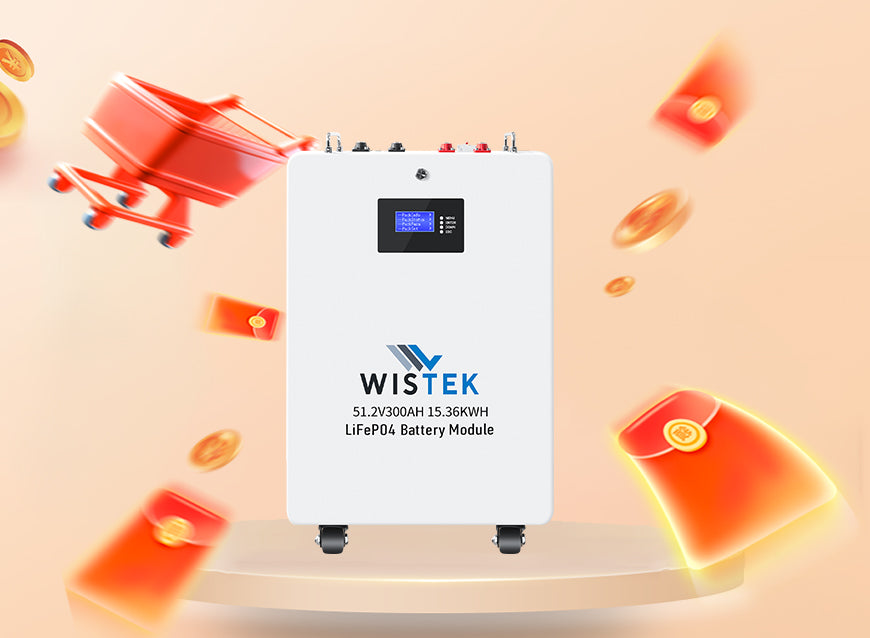A Beginner's Guide to Converting Milliamp-Hour to Watt-Hour
When it comes to understanding batteries, whether for smartphones, laptops, or electric vehicles, two important metrics often come up: milliamp-hour (mAh) and watt-hour (Wh). These measurements help determine the battery's capacity and performance, but converting between the two can be a little confusing for beginners. In this guide, we'll break down the conversion process and explain everything you need to know about converting milliamp-hour to watt-hour.
- What is Milliamp-Hour (mAh)?
- What is Watt-Hour (Wh)?
- A Beginner’s Guide to Converting Milliamp-Hour to Watt-Hour
- Why is Converting mAh to Wh Important?
- Practical Uses for mAh to Wh Conversion
- Factors That Affect the Conversion
- Converting mAh to Wh for Different Devices
What is Milliamp-Hour (mAh)?
Before we dive into the conversion process, it’s important to first understand what milliamp-hour (mAh) means. Essentially, mAh is a unit of electric charge commonly used to measure the capacity of smaller batteries, like those in mobile devices or rechargeable gadgets. The higher the mAh value, the longer the battery can provide power.
For example, a 2000mAh battery can provide 2000 milliamps of current for one hour, or 1000 milliamps for two hours, and so on. This helps consumers estimate how long a battery will last before needing to recharge. However, mAh alone doesn’t tell you much about the actual energy the battery holds, which is where watt-hour (Wh) comes into play.
What is Watt-Hour (Wh)?
Watt-hour (Wh) is a unit of energy. It describes how much energy a battery can store and how much it can deliver over time. Unlike mAh, which only considers the electric charge, Wh takes into account both the charge and the voltage. In simpler terms, Wh gives you a more complete picture of the battery’s power capacity.
The relationship between these two units is essential because they allow consumers to compare the energy output of different batteries, especially when they have varying voltages.
>>See also How To Determine The Amps For 5000 Watts At 240 Volts
A Beginner’s Guide to Converting Milliamp-Hour to Watt-Hour
Now that we understand what mAh and Wh mean, let’s talk about how to convert between them. The conversion involves a simple formula, but understanding why and how it works is key to making the process easier.
Formula for Conversion
To convert from milliamp-hour (mAh) to watt-hour (Wh), the formula you need is:
Wh = (mAh × Voltage) / 1000
Here’s a breakdown of the terms:
- mAh: The battery capacity in milliamp-hours.
- Voltage: The voltage of the battery. This is often listed on the battery itself or in the product specifications.
- 1000: This is a factor used to convert from milliamp-hours (mAh) to amp-hours (Ah) because there are 1000 milliamps in one amp.
Step-by-Step Example
Let’s work through an example to make this clearer. Suppose you have a 2000mAh battery with a voltage of 3.7V. To find the watt-hour (Wh), you would use the following calculation:
Wh = (2000mAh × 3.7V) / 1000
Wh = 7400 / 1000
Wh = 7.4Wh
So, a 2000mAh battery at 3.7V holds 7.4 watt-hours of energy.
Why is Converting mAh to Wh Important?
Understanding how to convert milliamp-hour to watt-hour is crucial for several reasons, particularly when you’re comparing batteries of different devices or types. Here are some key points:
Energy Storage Comparison: If you have two batteries with the same mAh rating but different voltages, their energy storage capacity will differ. By converting mAh to Wh, you get a better idea of how much energy the batteries can actually hold.
Device Compatibility: Some devices require a specific amount of energy to operate. Knowing the watt-hour rating of a battery can help you determine if it's suitable for the device in question.
Battery Lifespan: The higher the watt-hour rating, the longer a battery can potentially power a device. For example, if you’re buying a power bank, it’s helpful to know how many watt-hours it can store to understand how much charge it can provide.
Practical Uses for mAh to Wh Conversion
Converting milliamp-hour to watt-hour isn't just a theoretical exercise. There are real-world situations where this knowledge comes in handy:
Power Banks
When shopping for a power bank, you’ll often see the capacity listed in mAh. But depending on the voltage of the device, the actual energy output (in Wh) can vary. By converting mAh to Wh, you can better assess whether a particular power bank will meet your needs.
Electric Vehicles and eBikes
In the world of electric vehicles (EVs) and electric bikes (eBikes), batteries are commonly rated in watt-hours. If you encounter a battery spec listed in mAh, knowing how to convert it to Wh can help you estimate the range of the vehicle or the duration of the battery’s performance.
Solar Power Systems
Solar energy systems often rely on battery storage to keep power on hand. When comparing different battery options for solar storage, it’s important to convert mAh to Wh to understand the energy capacity of each battery. This helps ensure that the battery you choose will meet the energy requirements of your home or business.
Factors That Affect the Conversion
While the formula for converting mAh to Wh is straightforward, a few factors can affect the results, such as:
Battery Efficiency: Not all batteries are 100% efficient. Some energy is lost during the conversion process, so the actual usable watt-hours may be slightly less than what you calculate.
Voltage Variation: The voltage rating on the battery can fluctuate due to factors like temperature, age, or load. It’s important to use the voltage under standard conditions to get an accurate Wh measurement.
Discharge Rates: Batteries discharge differently based on the rate at which they are used. High drain devices may deplete the battery faster, affecting the expected performance and making the conversion slightly less accurate.
>>See also What You Need To Know About 18650 And 14500 Batteries
Converting mAh to Wh for Different Devices
Smartphone Batteries
Smartphones typically have lithium-ion batteries, and their capacity is often listed in mAh. If you want to know how long your phone will last on a full charge, converting to Wh can give you a better understanding. For example, a typical smartphone battery might have a capacity of 3000mAh and a voltage of 3.8V. Converting to watt-hours:
Wh = (3000mAh × 3.8V) / 1000
Wh = 11.4Wh
Knowing this can help you compare different models of smartphones and their battery performance.
Laptop Batteries
Laptop batteries are larger and typically come with higher mAh ratings. However, since they also operate at a higher voltage, the watt-hour rating can vary widely between different models. By converting the mAh to Wh, you can compare the overall energy capacity of different laptop batteries.
Converting milliamp-hour to watt-hour is an essential skill for anyone who works with batteries, whether you’re a tech enthusiast, a solar energy advocate, or simply someone who needs to understand their devices better. With this guide, you now know how to perform the conversion and why it matters for various applications. By understanding the energy storage capacity of your batteries, you can make more informed decisions when purchasing and using battery-powered devices.
To recap, if you need to convert mAh to Wh, the simple formula is:
Wh = (mAh × Voltage) / 1000
And once you know how to do this, you can better understand the power capacity of your batteries, leading to smarter decisions in all your tech purchases. Always remember to check both the mAh and voltage specifications when comparing battery-powered products, and don’t hesitate to use the guide provided in this article to convert mAh to watt-hour whenever you need.

























Leave a comment
All blog comments are checked prior to publishing